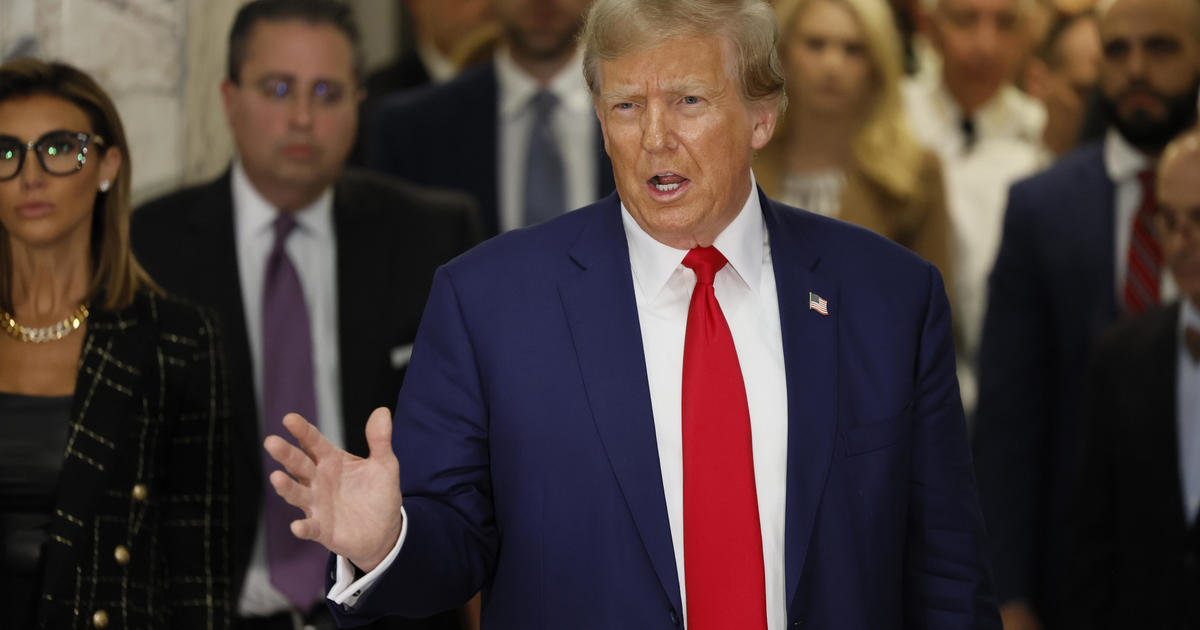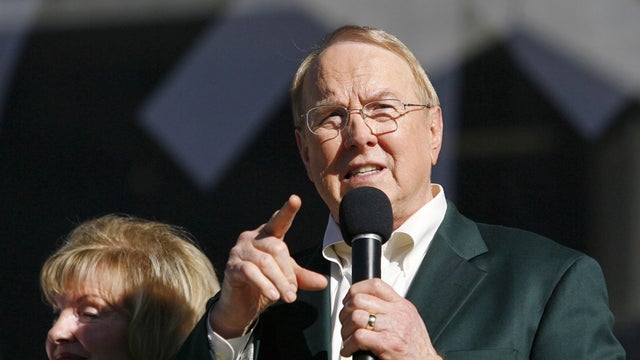

No response returned

A panel of justices on a New York appellate court threw out the half-billion-dollar penalty in the civil fraud case against President Trump and others on Thursday, ruling that the fine was "excessive" while saying they were divided on the merits of the case.
One of the justices on the Appellate Division, First Judicial Department that the penalty, known as a disgorgement, against Mr. Trump, two of his sons and other executives and their company was "an excessive fine barred by the Eighth Amendment."
In February 2024, a New York judge Mr. Trump and his codefendants to pay the state nearly $364 million in "ill-gotten gains" and millions more in interest dating back years, a total that has since ballooned to about $527 million. Judge Arthur Engoron's judgment left Mr. Trump on the hook for nearly 98% of the total.
New York Attorney General Letitia James said in a statement Thursday that her office will appeal the decision to the Court of Appeals, the state's highest court. Her statement lauded one aspect of the ruling, which left in place sanctions barring Mr. Trump from serving as an officer or director of any corporation or other legal entity in the state for three years. His sons, Eric Trump and Donald Trump Jr., were banned for two years.
"The court upheld the injunctive relief we won, limiting Donald Trump and the Trump Organization officers' ability to do business in New York. It should not be lost to history: yet another court has ruled that the president violated the law, and that our case has merit," James said.
Mr. Trump hailed the decision in a , claiming "TOTAL VICTORY," despite the limited nature of the ruling.
"I greatly respect the fact that the Court had the Courage to throw out this unlawful and disgraceful Decision that was hurting Business all throughout New York State," Mr. Trump wrote.
James first brought the case in 2022, alleging Mr. Trump oversaw a scheme to deliberately mislead companies he was in business with about the values of properties and Mr. Trump's overall net worth.
Mr. Trump's lawyers have long argued that the civil case was driven by politics. But Engoron disagreed, ruling in February 2024 that Trump and his codefendants had misrepresented his wealth and inflated the valuations of his properties by hundreds of millions of dollars over the course of a decade. The state said the scheme was intended to trick banks and insurers into offering more favorable deal terms.
The president appealed the judgment, and the five-justice appellate panel heard arguments in September 2024. At least two of the justices of the size of the judgment. One called it "immense" and "troubling." Mr. Trump was represented during the September proceeding by D. John Sauer, who is now the solicitor general.
In a complex series of opinions on Thursday, the justices wrote that they were deeply divided, with two saying a new trial should be ordered and one writing that the case should be tossed altogether. A majority of four justices settled on an alternate path: vacating the massive financial penalty without resolving the merits of the case. The penalty, as one wrote, "was far from a reasonable approximation" of the amount that was warranted.
Justice David Friedman, who dissented from the majority, noted that two of the four justices who voted to vacate the penalty "do not actually agree with the resolution of the appeal for which they are voting."
"I find it remarkable that, although a three-justice majority of this five-justice panel believe that the judgment in favor of the Attorney General should not stand … the result of the appeal is the affirmance of the judgment, albeit as modified to eliminate the disgorgement award," Friedman wrote.
"To draw a sports analogy, it is as if a team is awarded a touchdown without crossing the goal line," he continued.
Justices John Higgitt and Llinét Rosado said they would have preferred to order a new trial, but would join the majority "with great reluctance."
"Under the truly extraordinary circumstances here, where none of the writings enjoys the support of a majority, we are moved to take this action to permit this panel to arrive at a decision and to permit the parties and the Court to avoid the necessity of reargument," they wrote. "We must therefore agree with Justice Friedman in his observation that a remarkable situation has necessitated a remarkable solution."
The appellate court typically issues decisions within a few months of arguments, but the intricacy of the legal issues at hand seems to have delayed a final ruling. Sources on both sides of the dispute expressed surprise to TheNews about the length of the wait for a resolution, as the seasons changed and the court drew closer to a year without word from the court.
James' office has defended the punishment, saying it accurately reflected the size of Mr. Trump's profits from fraud.
Engoron wrote in his ruling that documents in evidence prove "over and over again" that the defendants falsely inflated Mr. Trump's wealth and reported those fraudulent numbers to business partners.
He said Mr. Trump's "complete lack of contrition and remorse borders on pathological," and said his company gave their accountants "blatantly false financial data."
Despite overturning the judgment, the appellate panel concluded that Engoron "was even-handed at trial, and allowed both sides to 'make their case.'"
Mr. Trump testified during a bench trial in the case, , blaming his employees and others while also insisting his books were kept appropriately. Accused of falsely inflating his wealth, Mr. Trump claimed the opposite was true, saying his company "underestimated" the value of his properties.
"The numbers you are talking about here is, you know, they are very big numbers, very, very big. Far bigger — the values are far bigger than what is on the financial statement," Mr. Trump said, later adding, "billions of dollars more."
Engoron concluded that testimony by Mr. Trump, his sons and other Trump Organization executives was not credible. A majority of the appellate panel agreed with that determination, as well as another related to Mr. Trump's former lawyer and "fixer" Michael Cohen, who testified against Mr. Trump.
"We defer to the court's findings that the testimony of President Trump, Donald Trump, Jr., Eric Trump, Jeffrey McConney and Allen Weisselberg were not credible, and that the testimony of Michael Cohen was credible," the court said.





